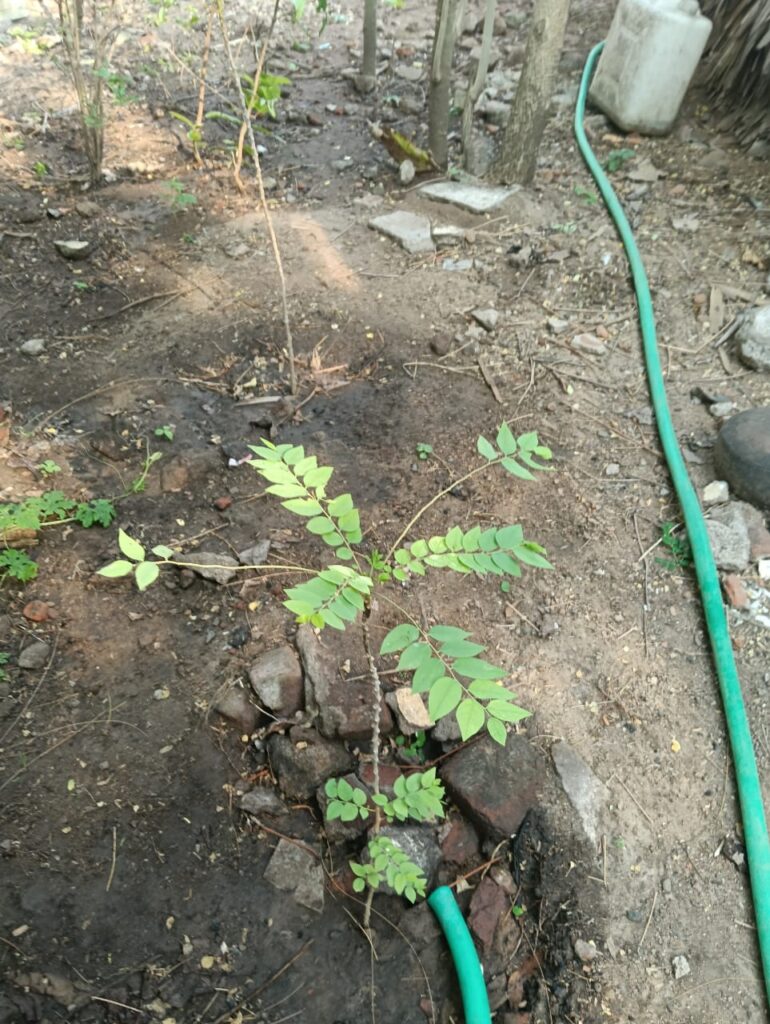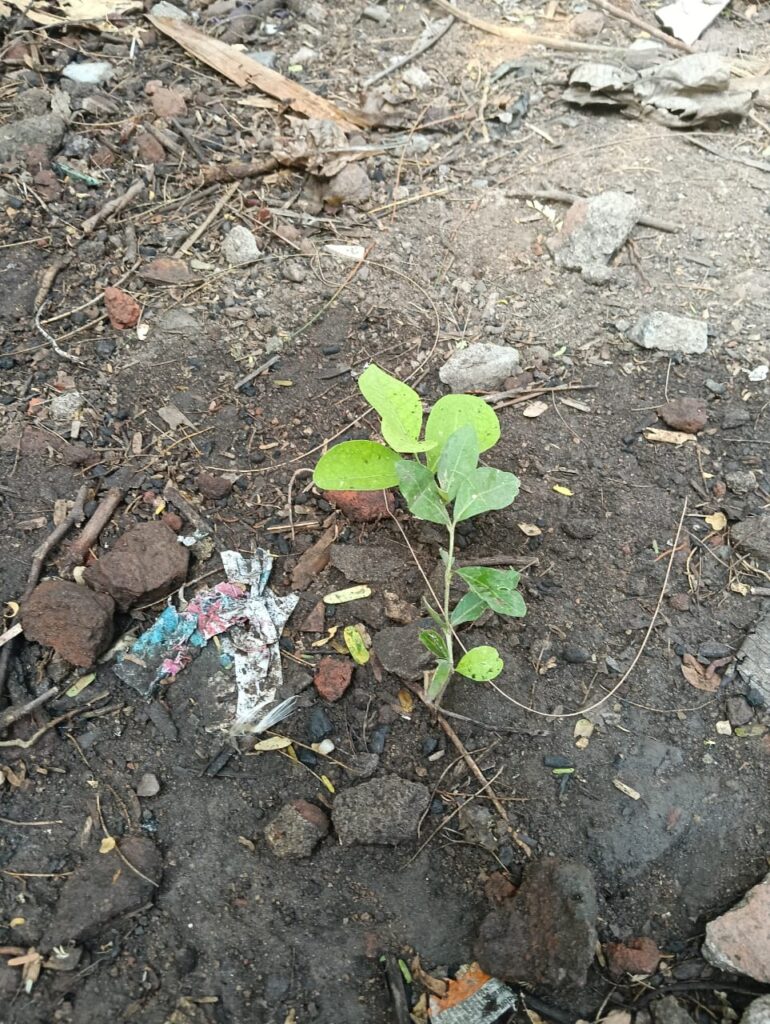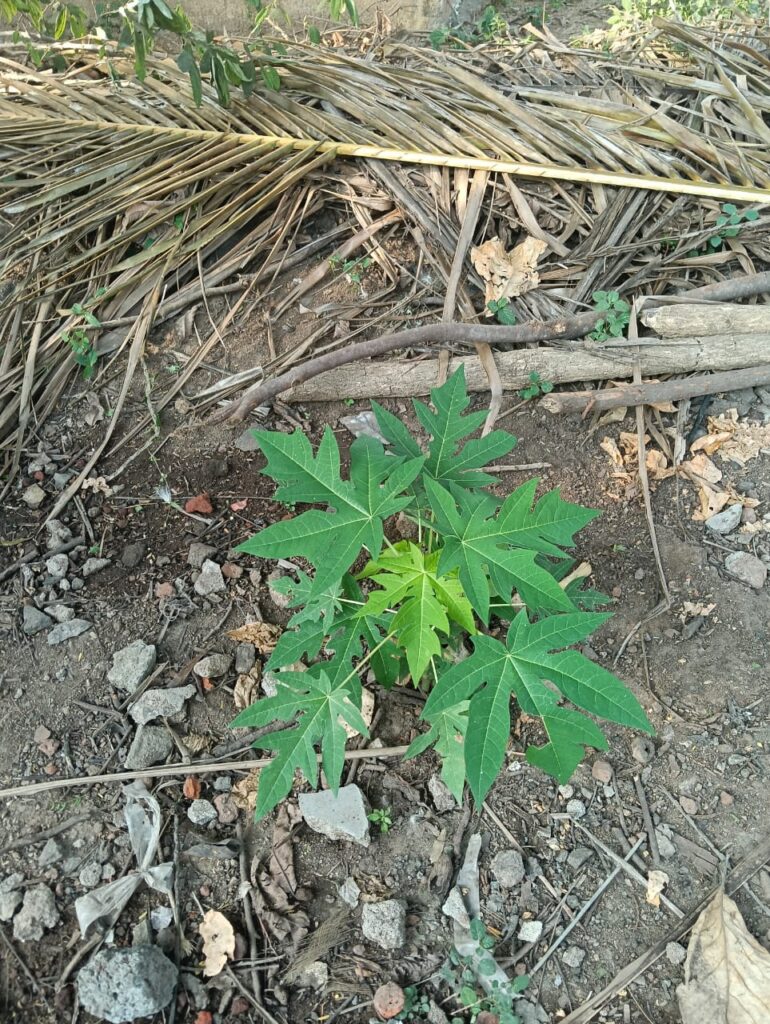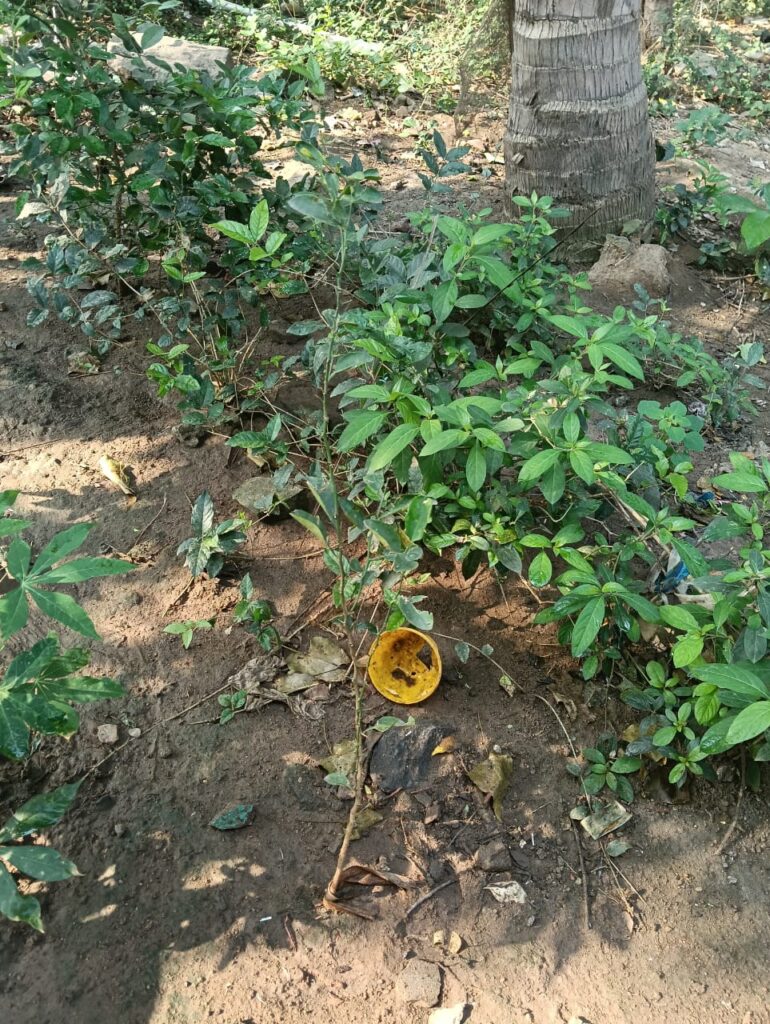In recent times, the word “sustainability” has echoed across every sphere of our lives—from the products we use to the choices we make. For NGOs like ours, sustainability isn’t just a buzzword—it’s the cornerstone of our work. Every intervention we plan is carefully designed to empower communities in ways that continue to benefit them long after our direct involvement ends.
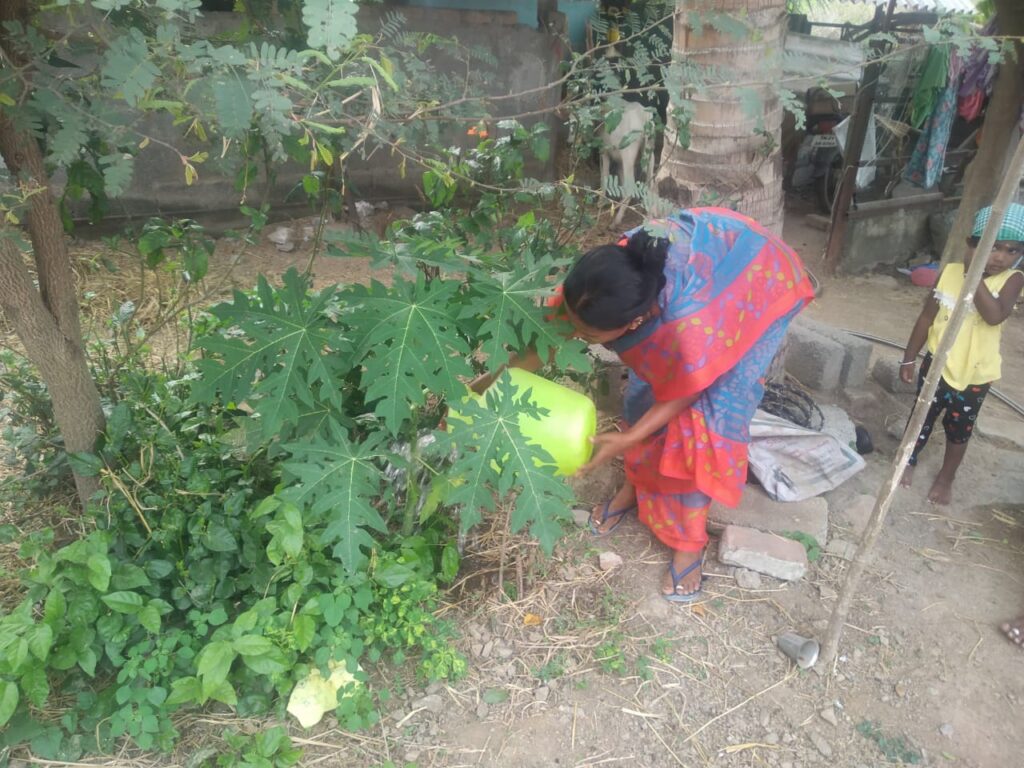
One such impactful initiative under our health project with Omega Forum for Social Impact (OFSI) is the establishment of nutrition gardens in target rural tribal villages of OFSI. These gardens are a beautiful testament to how small, community-led efforts can make a significant difference in people’s lives.Nearly 70+ women benefitted under this initiative.
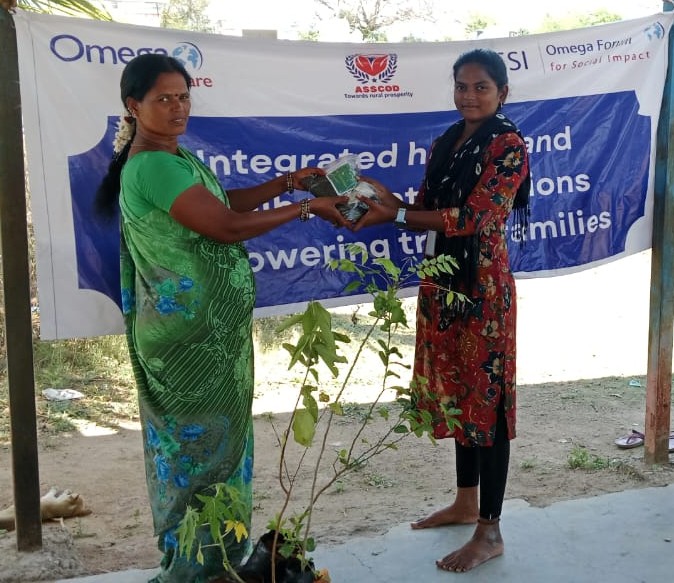
The Idea Behind the Nutrition Garden
With growing concerns over poor dietary habits and rising cases of malnutrition and anaemia, especially among women and children, we realized the need to create a sustainable solution that addresses the root of the problem: lack of access to fresh, nutritious food. Hence, the idea of a nutrition garden was born.
With the support of local people, we began by distributing fruit- and vegetable-bearing seeds and saplings to selected households and community spaces. The aim was simple—help families grow their own food and foster a habit of healthy eating.
From Seeds to Saplings: A Journey of Growth
What began as a patch of soil and a handful of seeds has now grown into thriving gardens filled with short trees, lush greens, and budding vegetables. Some plants have already begun yielding produce, and villagers are proudly using the harvest for their daily meals. These gardens are not only filling stomachs—they’re nurturing lives.
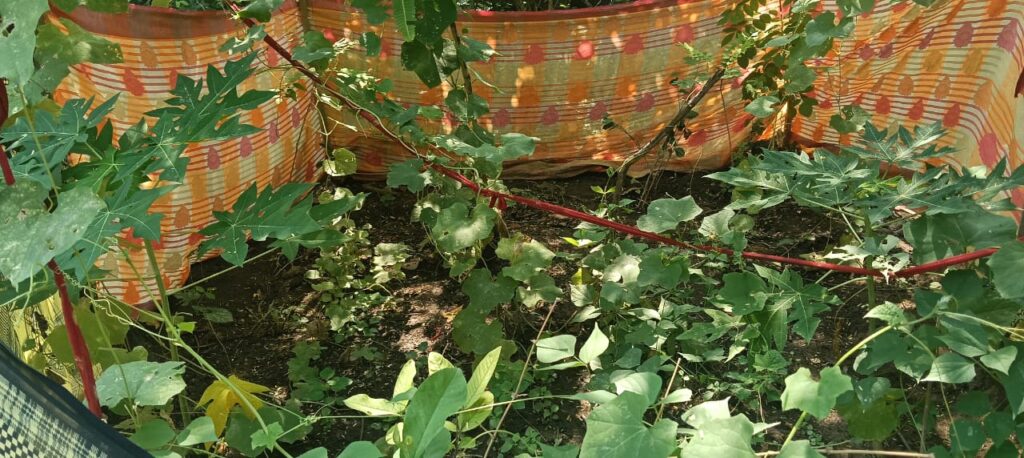
The transformation we see today is proof of the power of giving people what they truly need. Instead of temporary solutions, we focused on capacity-building—enabling communities to sustain their own well-being.
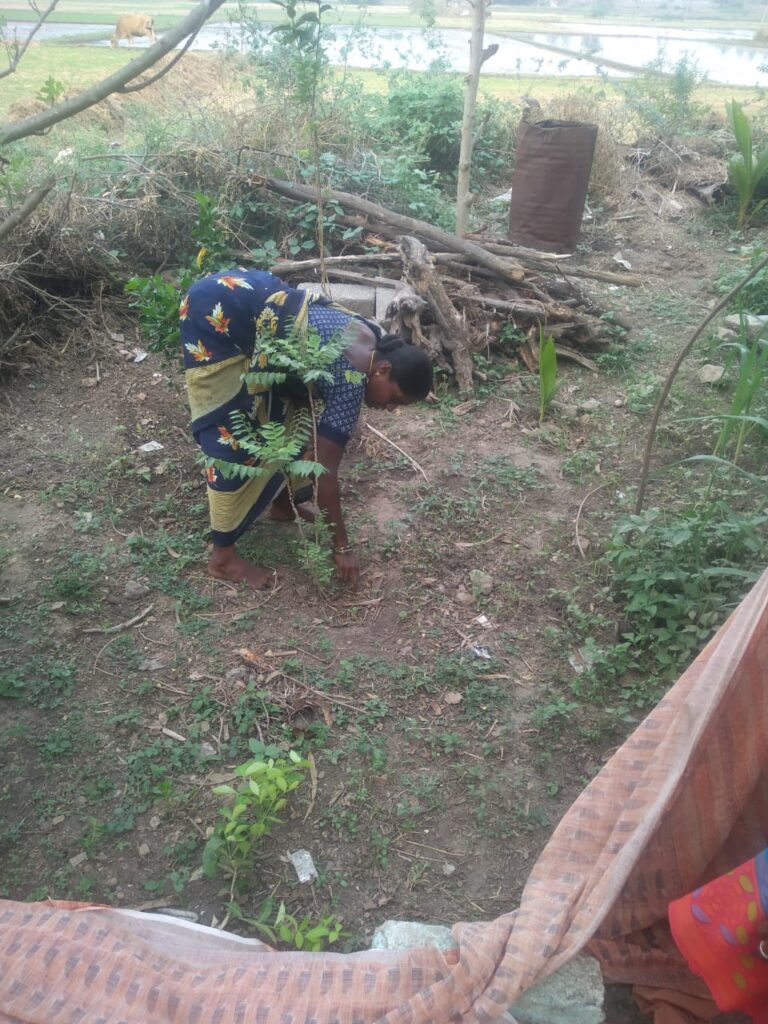
The gardens are now managed completely by the villagers, who water, weed, and care for the plants as part of their daily routine. For many, gardening has become more than a task—it’s a new hobby, a source of pride, and a step towards self-reliance.
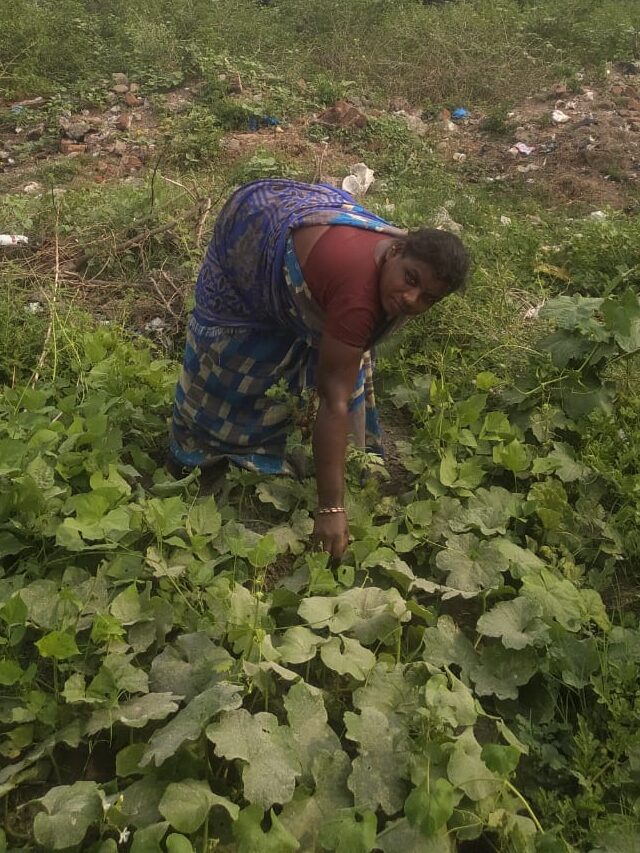
The Impact: Beyond Nutrition
The nutrition gardens have done more than just improve dietary intake. They have:
- Strengthened community bonds, as families share tips, seeds, and even produce with each other.
- Empowered women, who often take charge of maintaining the gardens and teaching their children the importance of nutrition.
- Encouraged environmental awareness, as people begin to understand the value of soil, water, and seasonal farming.
- Offered a therapeutic escape, helping many villagers find joy and peace in nurturing a living space.
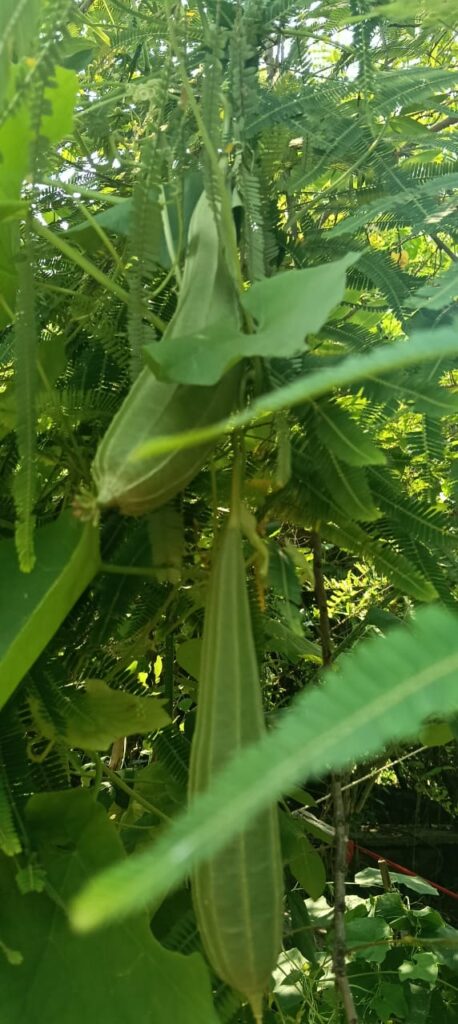
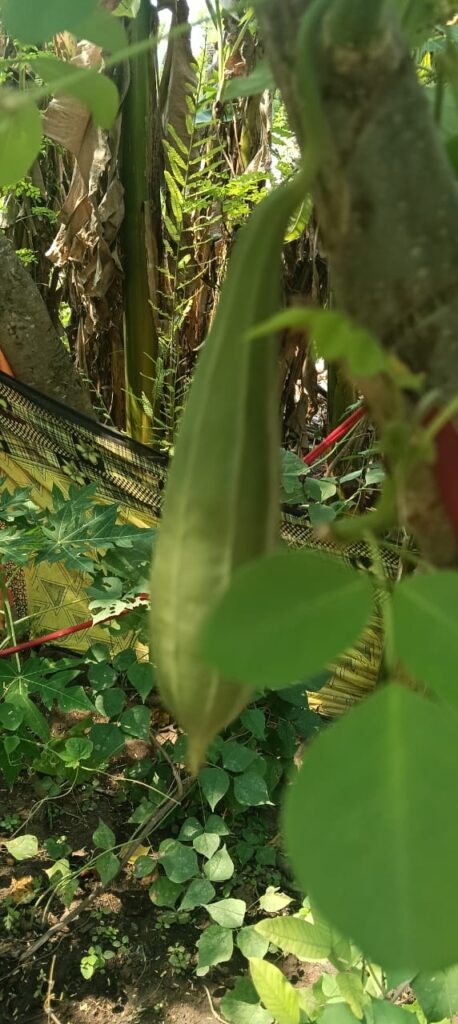
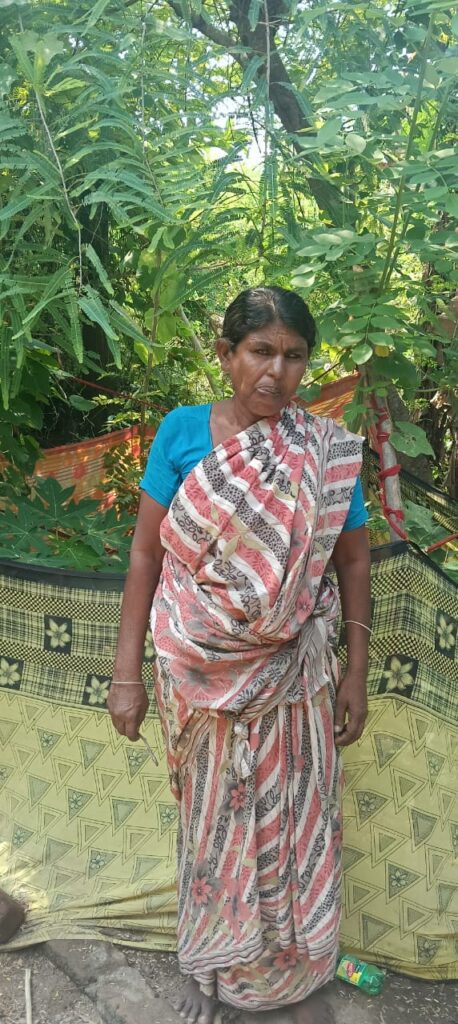
Looking Ahead
Sustainability isn’t just about what we do—it’s about what continues to grow after we’re gone. These nutrition gardens are a testament to that philosophy. With each growing plant, we see a future where communities are healthier, more resilient, and better equipped to care for themselves and the environment.
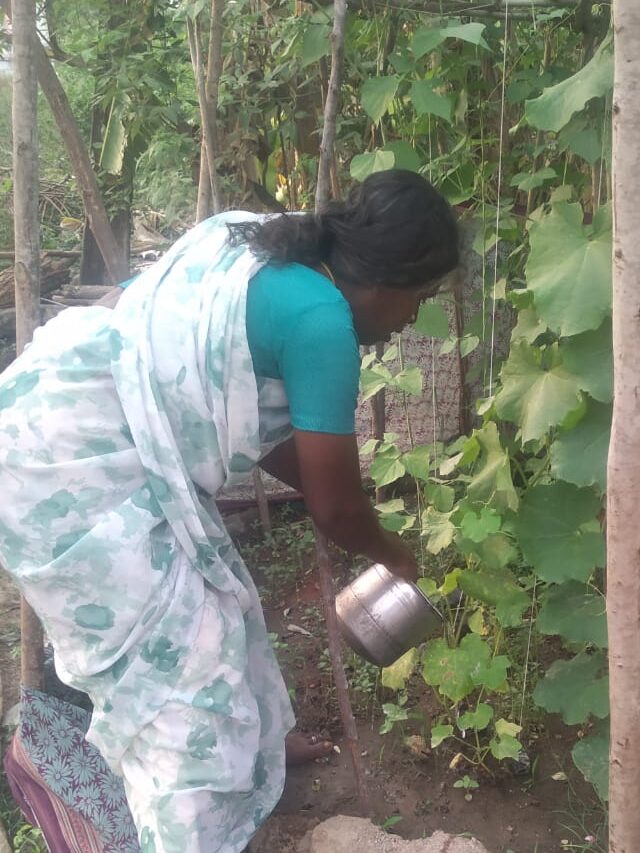
As we continue our work with OFSI and our committed community members, we are hopeful that more such initiatives will sprout across villages—each garden standing tall as a symbol of self-sufficiency and sustainable change.

